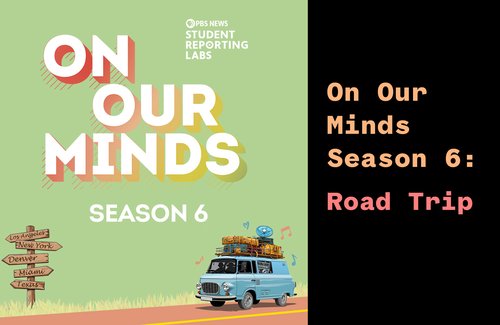
Reporting Labs’ award-winning podcast, On Our Minds, explores the teenage experience, produced and hosted by teenagers themselves.
Season 6 will explore hyperlocal stories about cities, towns and neighborhoods. Think: audio essays about unique traditions, sound tours of cool locations, personal stories about life-changing moments and insightful interviews with local legends. We want to hear a story that reveals what makes your community feel alive and how that energy shapes the people who live in it.
Opportunities for students:
Students can produce an audio story during the fall or spring semesters. The deadline to pitch a story idea is December 19th. Episodes will be released in Spring 2026.
Listen to this example of an audio story about place (Ginger's subway story) with a friend or classmate. Discuss what you heard:
START PLANNING AND PRE-PRODUCTION: Ask the following questions to yourself or others in your community when coming up with your story idea:
The best stories are ones that bring the listener somewhere and get them invested in a person or people that they've never met before. Think about what sounds and details you can include in your audio story to make your listener feel like they've been transported to your location and feel close to your subject(s). All good stories also REVEAL something – think about how SURPRISE, CONFLICT and CHANGE will feature in your story. You want to leave your listener with the impression that they've gone somewhere, something has happened, and someone has been changed in the process.
Once you've filled out the Student Producer Form and heard back from an SRL producer, or if you're doing this project on your own, follow these production steps:
4-6 Weeks